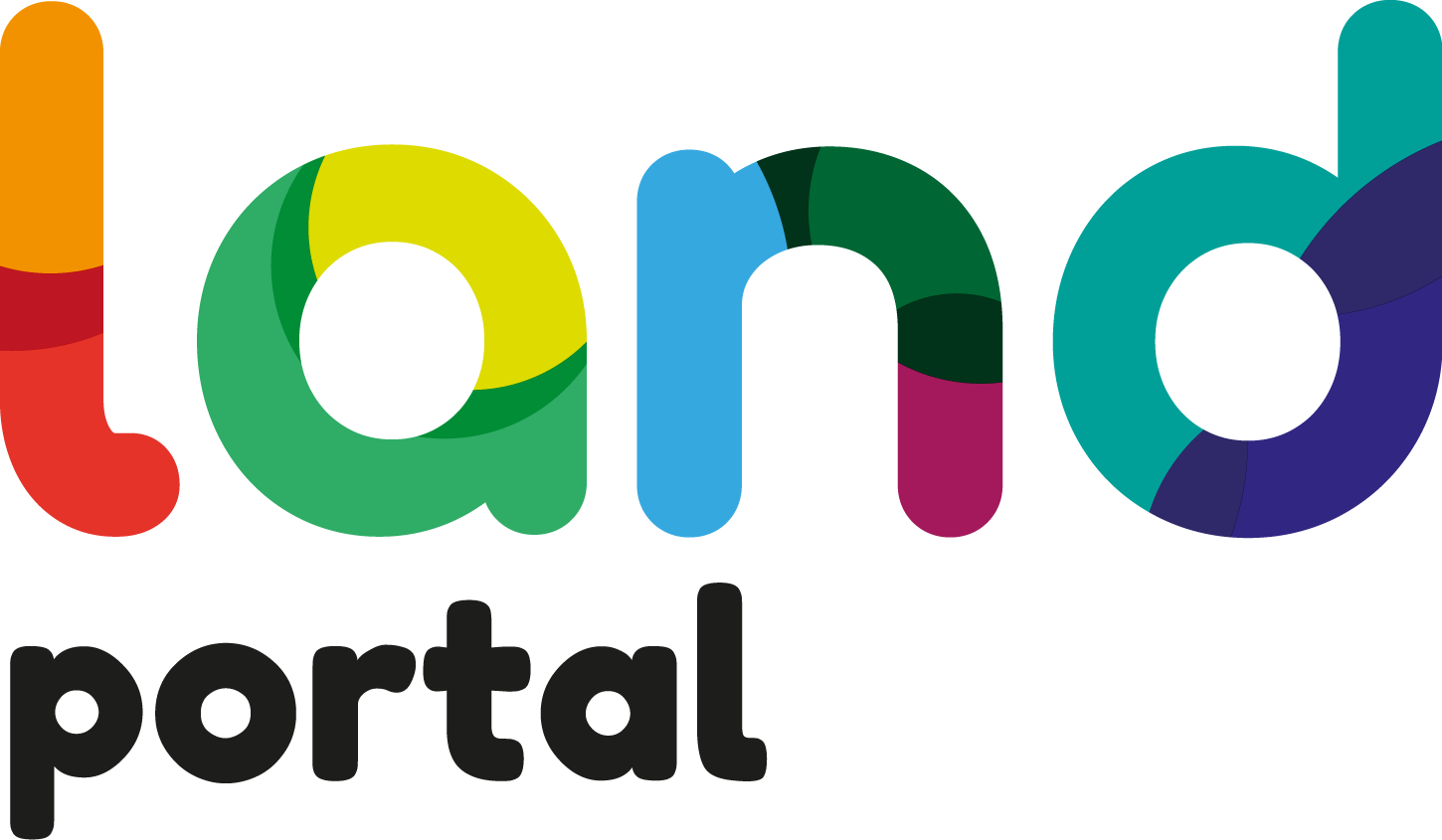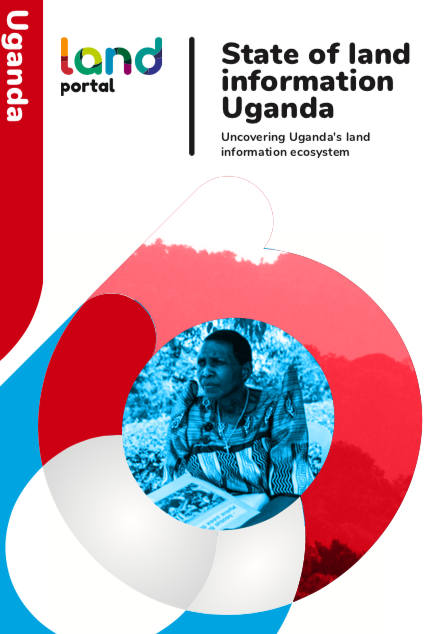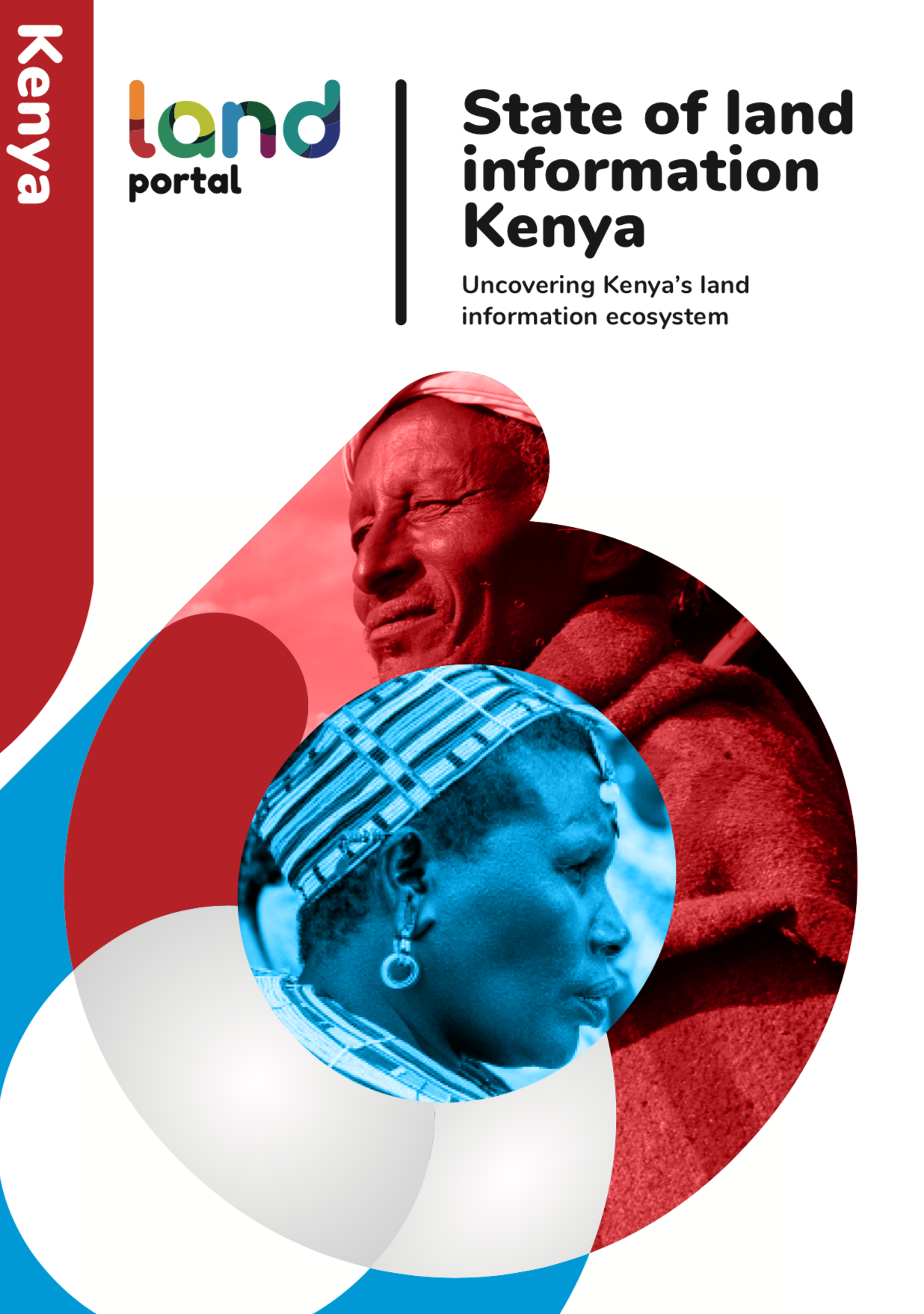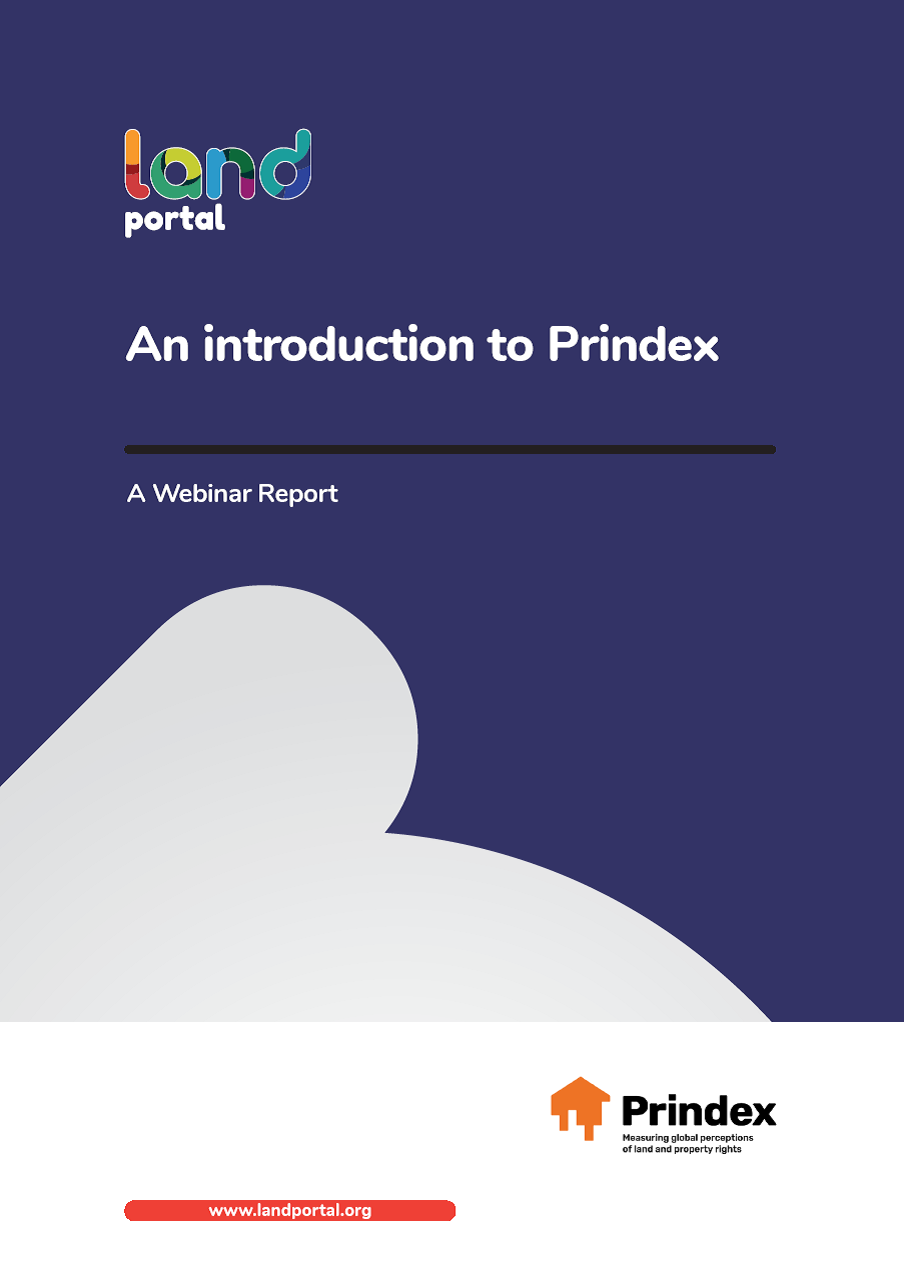Location
The Land Portal is a Foundation registered in the Netherlands in 2014.
The vision of the Portal is to improve land governance to benefit those with the most insecure land rights and the greatest vulnerability to landlessness through information and knowledge sharing.
The goal of the Portal is to become the leading online destination for information, resources, innovations and networking on land issues. Through this it will support more inclusive and informed debate and action on land governance and will increase the adoption and up-scaling of best practices and emerging innovations on land tenure.
Read more about us and join the Land Portal now!
Resources
Displaying 111 - 115 of 168State of Land Information Uganda: Uncovering Uganda's Land Information Ecosystem
Availability of accurate and up to date data and information on land and different land uses, such as agriculture, forestry, mining, wildlife, water, housing and infrastructure, is critical to effective land governance and crucial for planning and managing the use of land and land-based resources. Public institutions and the government need land data and information for appropriate and timely decision- making; while land users, the general public and other stakeholders need it to effectively monitor and influence those decisions.
State of Land Information Kenya: Uncovering Kenya's Land Information Ecosystem
Availability of accurate and up to date data and information on land and different land uses, such as agriculture, forestry, mining, wildlife, water, housing and infrastructure, is critical to effective land governance and crucial for planning and managing the use of land and land-based resources. Public institutions and the government need land data and information for appropriate and timely decision-making; while land users, the general public and other stakeholders need it to effectively monitor and influence those decisions.
Ajenda ya Urekebishaji wa Sera ya Ardhi Nchini Kenya
Webinaa kuhusu Urekebishaji wa Sera ya Ardhi Nchini Kenya ilifanyika tarehe 10 Oktoba, 2018. Webinaa ilipitia mchakato wa urekebishaji wa Sera ya Ardhi nchini Kenya na ikashughulikia changamoto anuwai. Lengo lilikuwa kubaini hatua za kufuata zitakazoleta usawa na haki katika urekebishaji wa sera ya ardhi.
Webinaa ilishughulikia maswali yafuatayo:
Tumefika wapi katika mchakato wa urekebishaji wa Sera ya Ardhi?
Changamoto kuu zinazohitaji kushughulikiwa katika mfumo wa urekebishaji wa Sera ya Ardhi na matumizi ya ardhi ni zipi?
Customary Land Recognition: Zambian Approach to Documentation and Administration
From January 15 to February 6, 2018, the USAID’s Tenure and Global Climate Change Program and Land Portal Foundation co-facilitated a dialogue on experiences of documenting household and community-level customary rights in Zambia. The dialogue brought together the perspectives of government, traditional leaders, practitioners, civil society, and academics to consider how customary land documentation can contribute to national development goals and increased service delivery in rural and peri-urban areas.
An Introduction to Prindex
The webinar An introduction to Prindex took place on 28 November, 2018. This webinar presented a basic understanding of how Prindex works. The Prindex team presented results of data collected from 15 countries. It focused on pathways for using Prindex to propel policy conversations and movement-building for policy reform with the help of panellists from some of the countries where data was collected.
Panelists were asked to address the following questions:









